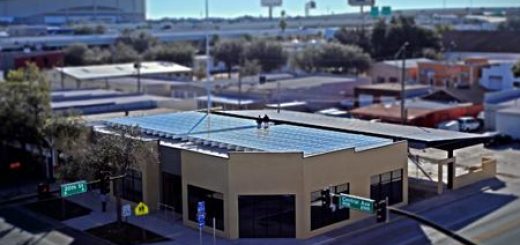Although scientific knowledge is driven forward by small groups and individuals who push the boundaries of what we know as a species, the technology we employ isn’t so clearly motivated. Before major tech gets adopted, it must overcome the stumbling blocks of public opinion and political wrangling, not to mention the business realities of setting up new infrastructures and financial support systems. As with any other technology, electric cars are both limited and enabled by such factors.
What Defines a Technology?
Most definitions accept technology as any tool that humans apply to a specific purpose, including procedures, machinery and even basic functional objects. While the sticks and rocks our ancestors once relied on for hunting and gathering are examples of the earliest known technologies, the distribution model has changed dramatically since the mass industrialization of our culture.
No longer do people adopt technologies solely because they’re useful. Now, advertising, politics and other forms of largely unidirectional communication play huge roles in the spread of potentially useful hardware. Those who have the funds to purchase influence can easily skew the discussion in favor of one product or another, and this is what the electric car industry has to deal with.
Understanding the History
The electric car is nothing new. The first functional example was demonstrated in 1881 in Paris, about four years before Karl Benz built his original iconic Motorwagen.
The initial popularity of the electric vehicle really only waned due to the mass production of gasoline and internal combustion engine technologies. Today, however, most of the technical kinks have been worked out, and repeated energy crises have reversed the situation, returning the electric vehicle to the forefront of the public consciousness.
Fighting Against a Concerted Effort
While the demand for cleaner, more energy-efficient electric vehicles is clearly extant, there are still a few factors standing in the way. One of these is the fact that new technologies could represent a major death blow for automakers.
Don’t believe car manufacturers and their lobbyists feel threatened? Just look at the fact that 22 states and Washington D.C. maintain legislation barring companies like Tesla from selling its own cars without first going through dealers. Although these states maintain that such laws are designed to protect traditional dealers from factory-owned competition, there are no startup electric vehicle companies with preexisting retailers, so the law is clearly skewed against them. Further damning this argument, the efforts of state governments that attempted to exempt electric car manufacturers from the ban were outright blocked in legislature.
Traditional automakers also benefit from heavy subsidization and government support. These firms receive huge bailouts when they fail, and as the previous example shows, they can lean on legislators in order to influence laws to their own advantage. For electric car makers, these factors represent significant setbacks.
What Does the Future Hold?
So who’s going to win in the fight for automobile supremacy? If things keep going the way they are, with technologies like wind power, solar energy and other independent energy resources becoming ever more popular and widely available, the traditionalists are fighting a losing battle. Ongoing environmental disasters and fiscal foul ups can only benefit from so much good PR. The populace is screaming for electric vehicles, and although the old guard is certainly taking its time to die out, it’s only a matter of time until it succumbs to the march of progress.
Tim Smith writes for Modernize.










